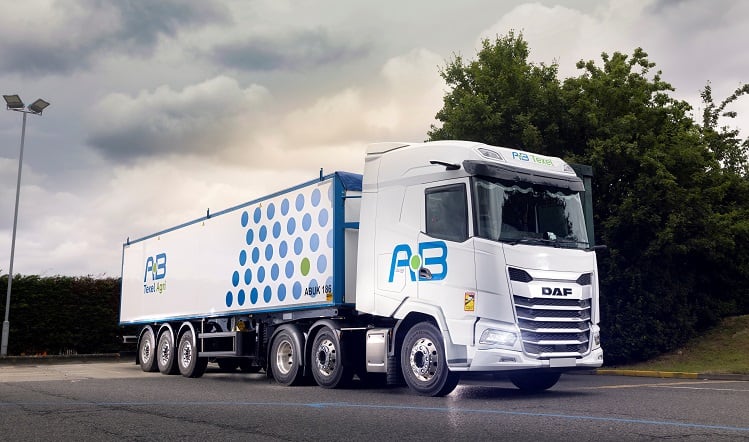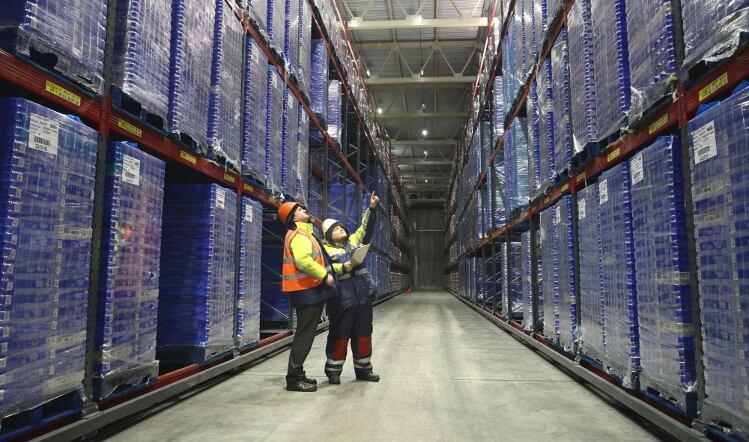What are the biggest challenges food manufacturers need to be aware of when considering efficient storage of their goods?
There are several important challenges that food manufacturers need to navigate to ensure efficient storage and maintain the quality of their products throughout the supply chain.
Firstly, it is vital that food manufacturers are able to ensure that there is no break in the chill chain, especially for products that require specific temperature conditions (frozen food -18C, chilled food up to 5C). This becomes even more challenging as demand increases and additional strain is placed on the supply chain.
Secondly, effective stock rotation is another area that needs to be taken into account. Products with shorter shelf lives need to be prioritised and shipped ahead of newly arriving products. This process helps maintain product quality and ensures that older inventory is used before it reaches its expiration date.
Thirdly, food manufacturers are often reliant on third-party logistics providers and this brings challenges for storage and transportation. Unfortunately, these providers are not always fully aware of the strict food requirements for frozen or chilled food. Manufacturers therefore need to ensure effective communication and coordination with logistics partners at all times.
Further up the supply chain, there can often be issues with quality and spoilage. Particularly during periods of warmer weather, those working with fresh ingredients face higher risks of quality issues and spoilage, as heat and prolonged transportation can negatively impact the quality and shelf life of perishable items. Extra precautions and proper storage conditions are necessary to minimize these risks.
We also witness holiday-related supply chain disruptions, with factories (including those producing supply materials, such as aluminium trays or foils), may be on holiday, leading to longer pre-order times. To mitigate potential delays, establishing a small amount of safety stock can be beneficial to maintain uninterrupted production.
What advances have been made to improve the handling of food in transit?
To better control and monitor the temperature conditions during food transportation, various advances have been made, including:
- Split temperature-controlled vehicles: some vehicles used for transporting food now have split temperature control, where the back of the vehicle is frozen while the front is chilled. This allows for tailored storage requirements and ensures that different temperature-sensitive products can be transported together without compromising their quality.
- Temperature tracking: vehicles used for food transportation are now equipped with temperature tracking systems. These systems monitor and record the temperature throughout the entire transit time. This helps identify any instances of temperature fluctuations, whether high or low, that may occur during transit. By detecting these variations, potential issues that could affect the quality of the food upon arrival at the distribution centre or store can be addressed in a timely manner.
Has AI played a part in maintaining the integrity of food during transit?
Like in most other sectors, artificial intelligence (AI) has a key role to play in improving processes and no more so in maintaining the integrity of food during transit. In particular, AI technology enables more consistent monitoring of temperature conditions throughout the entire chill chain.
AI systems can continuously track and analyse temperature data, alerting logistics providers or food manufacturers of any potential issues. This allows for timely corrective actions to be taken, to reduce the risk of spoilage or quality deterioration in a way that was previously difficult to achieve.
AI can also be used by logistics providers to optimize their delivery network. By analysing things like traffic patterns, weather conditions and delivery schedules, AI algorithms can generate more efficient routes and schedules. This can minimise the time that food goods spend on the road, reducing the chances of prolonged exposure to unfavourable conditions.




